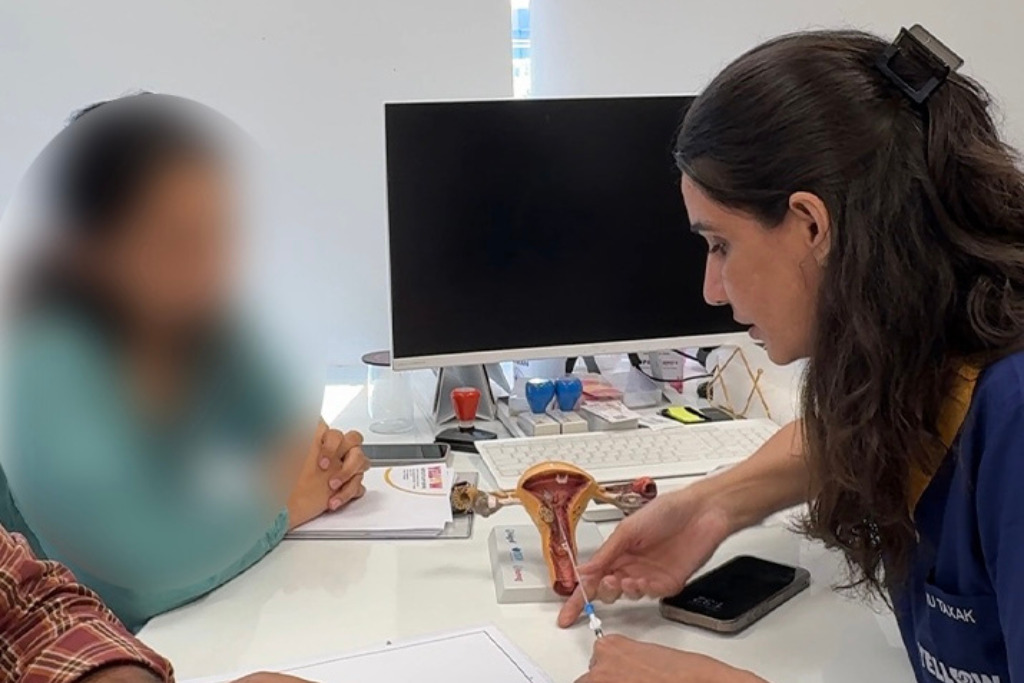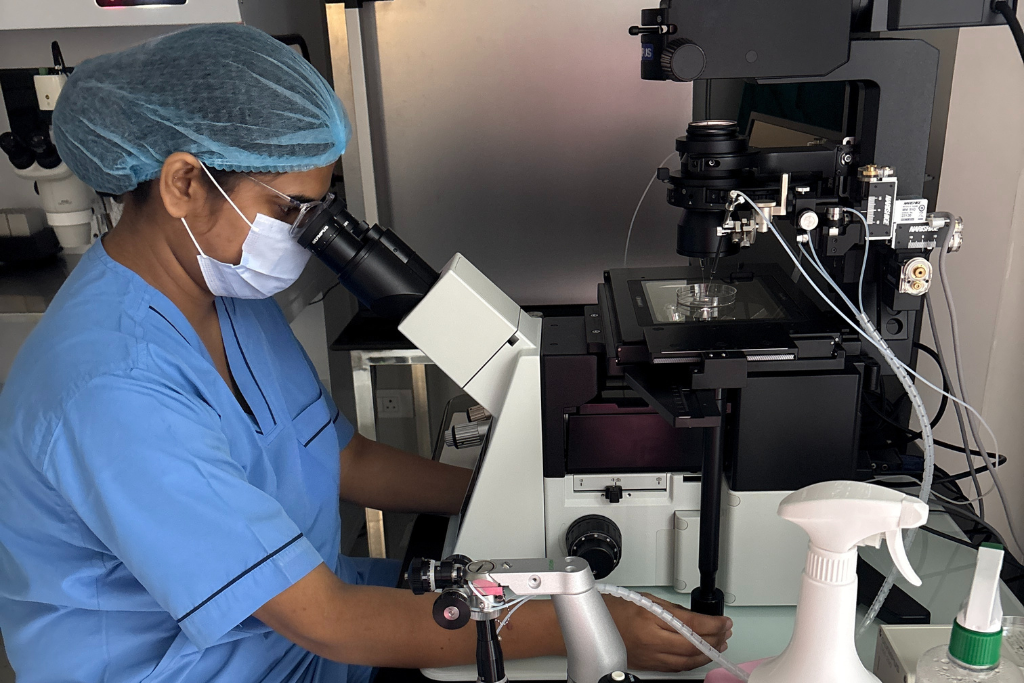Are you wondering what is next after IUI treatment?
Your journey does not end at the best IVF hospital in Gurgaon. Whether you are navigating mild side effects or eagerly awaiting pregnancy symptoms, knowing when to visit your IVF doctor after IUI (intrauterine insemination) is important.
By understanding what to expect, you can empower yourself to take charge of your fertility results. Read on to discover valuable tips for better success and let Yellow IVF guide you towards parenthood.
When to Visit a Doctor After IUI Treatment?
You need to schedule a follow-up with your doctor within 2 weeks after IUI treatment for a pregnancy test and to discuss any complications. Monitor your body for natural signs, but if you experience severe symptoms, visit your IVF doctor in Gurgaon or your nearest location immediately.
- Severe abdominal pain
- Vomiting
- Nausea
- Blurred vision
- Shortness of breath
- Lightheadedness or Dizziness
- Sudden excessive weight gain
IUI treatment brings the risk of ovarian hyperstimulation syndrome (OHSS), which can cause swollen and painful ovaries.
If you are experiencing side effects from fertility medications after IUI, such as infection, OHSS and vaginal bleeding, consult with your doctor promptly at the best IVF hospital in Gurgaon.
Schedule a post-IUI follow-up consultation with Yellow IVF and receive expert care and personalised guidance for a successful fertility journey.
How Effective is IUI in Achieving Pregnancy?
IUI is a highly effective treatment, especially when combined with fertility drugs. It results in a success rate of around 20%. However, age remains a crucial factor in determining fertility results. After introducing the sperm directly into the uterus, it facilitates fertilisation.
If IUI treatment is successful, the fertilised egg implants itself in the uterus over the next 6-12 days, marking the beginning of a pregnancy.

Navigating the 2-Week Wait: What to Expect After IUI Treatment?
The 2-week wait after the IUI procedure is emotionally and physically challenging for couples, especially for those who have tried for several cycles.
- Mild Cramping
You can experience abdominal pain due to progesterone, ovulation or implantation.
- Breast Tenderness
You may experience swollen or tender breasts due to hormonal changes during this time.
- Delayed Periods
The potential sign is missing periods. Do a pregnancy test and consult your gynaecologist.
- Fatigue
The increasing hormonal level, such as progesterone levels, leads to tiredness and low energy.
- Frequent Urination
You may experience frequent urgency to urinate.
- Sensitivity to Smell
Another surprising symptom is a heightened sense of smell. It can also trigger changes in appetite or food cravings.
- Spotting
Some women may experience implantation bleeding 6-12 days post-IUI.
What are the Potential tips for Smooth Recovery and Success after IUI Treatment?
- Perform Light Activities
After IUI treatment, no complete bed rest is required. You can return to your regular activities, such as light housework, desk work, or walking, to support your emotional well-being and promote healthy circulation.
- Eat a Nutrient-rich Diet
Consume a fertility-friendly diet rich in nutrients to support better implantation. Prefer colourful and leafy green vegetables for antioxidants. Add brown rice, quinoa, oats, and lean proteins like low-fat dairy, fish, and eggs, along with iron-rich foods such as lentils and spinach. Healthy fats, such as olive oil, avocado, seeds and nuts, are also important.
- Reduce Anxiety and Stress
Hormonal balancing can increase the likelihood of implantation. You can consider gentle stretching exercises, yoga, deep breathing and reading books or engaging in different hobbies to reduce your stress and support proper hormonal function.
- Stay Hydrated
Adequate hydration is necessary for being healthy during this time. Drink at least eight to ten glasses of water to regulate your uterine blood flow and balance hormones.
Post-IUI Precautions: What to Avoid for a Smooth Recovery?
- You must avoid high-intensity activities such as weight lifting, running, aerobics, or Zumba in the very first week after IUI treatment. It can cause contractions in the uterus.
- It is important to avoid both alcohol and smoking, which negatively impact egg quality, fertility and fetal development.
- According to IVF doctors in Gurgaon or elsewhere, caffeine can reduce conception chances. Choose decaffeinated options after IUI treatment.
Final Words
Implement these simple lifestyle changes as advised by the clinical protocols of Yellow IVF, the best IVF hospital in Gurgaon. This affordable IVF centre in Gurgaon significantly improves recovery, comfort, and outcomes with timely visits after IUI treatment.
Contact Yellow IVF today and enjoy unbeatable support at every stage of your parenthood journey.




